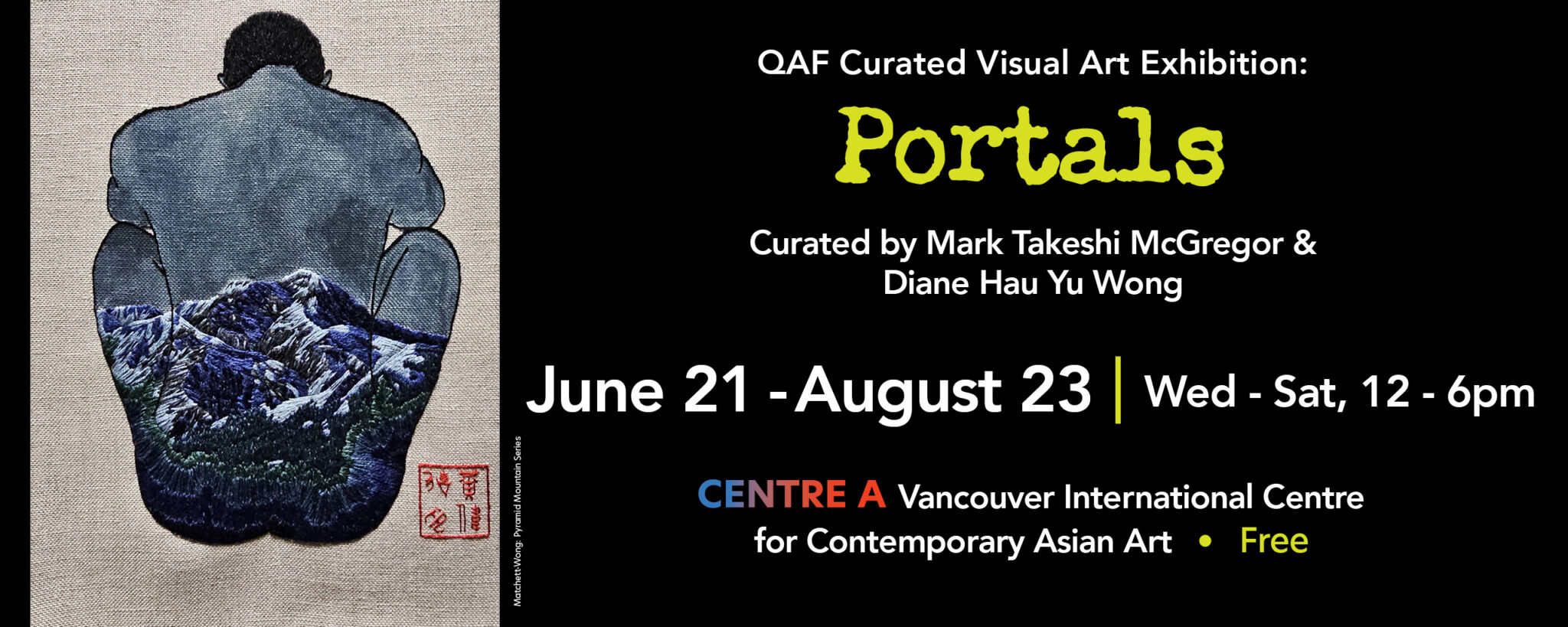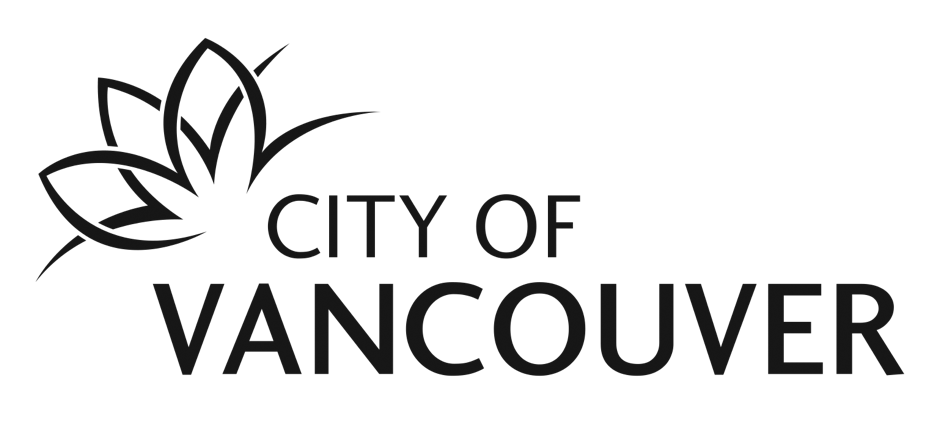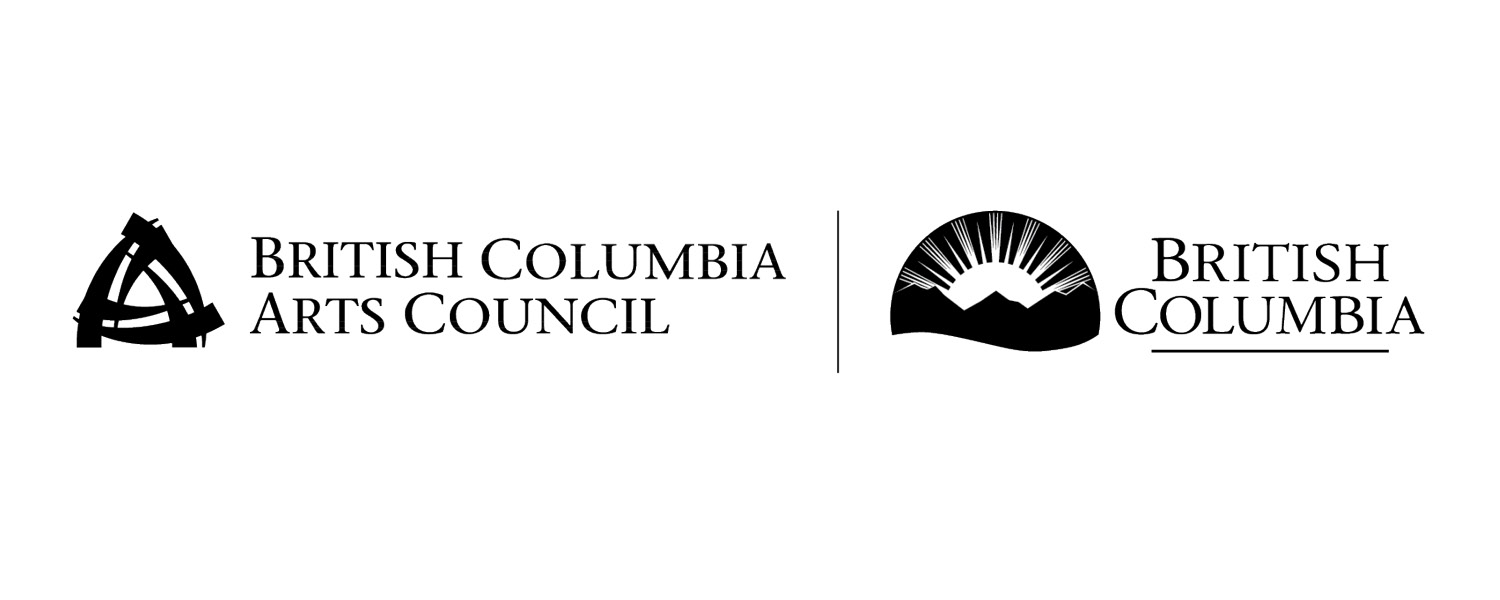EXHIBITIONS

PORTALS
Presented in partnership with the 2025 Queer Arts Festival and curated by Diane Hau Yu Wong and Mark Takeshi McGregor, this group exhibition explores “portals” as catalysts for change—points of departure that invite reflection on identity, migration, and the possibilities of reimagined worlds via the works of six Vancouver artists: Arkah अर्ख, Evan Matchett-Wong, Sena Cleave, Miles Saraswat, Christian Yves Jones, and Naomi Maya Leung 梁珮恩. As anti-trans, anti-queer and anti-immigrant rhetoric intensifies across the world, Portals responds to our increasingly dangerous political landscape while asking us to envision futures grounded in resilience, memory, and hope.
Artist Biographies
Arkah अर्ख (they/them) is a migrant from Delhi, India, living on stolen lands of the xʷməθkʷəy̓əm, Sḵwx̱wú7mesh, and səlilwətaɬ peoples. They are a visual artist and writer, trying to map spirit as a method of archival. By creating an opening into other possible worlds, Arkah is seeking answers. How do we trudge on, despite uncertainty? When visiting home, they work as an art teacher and muralist.
Sena Cleave (she/they) is an artist exploring ideas of work, reciprocity, and ongoing change. Their sculptural practice draws on their family history of farming, experiences working day jobs, and participation in domestic labour and care. Often using materials found in these settings, they investigate alternative methods of support and sustenance. Cleave lives in the unceded territories of the xʷməθkʷəy̓əm, Sḵwx̱wú7mesh, and səlilwətaɬ Nations, and was raised between Snuneymuxw and Snaw’naw’as territories and Osaka, Japan.
Christian Yves Jones (he/him) is a Philippine-born, New Zealand-raised filmmaker and video artist based in Vancouver, BC. He graduated with a Bachelor of Communication Studies from Auckland University of Technology (New Zealand), where he was awarded a Vice Chancellor’s Scholarship. His work spans a wide range of formats, including music videos, short films, video art films, and live television broadcasts. Christian’s creative practice often explores stories from the LGBTQ+ community and the Asian diaspora in the West.
Naomi Maya Leung 梁珮恩 (they/them) is a Han Cantonese settler, climate justice education facilitator and organizer, and mixed media artist. Naomi desires to create anti-colonial spaces centering trans and queer diaspora to process intergenerational trauma, grief, and to co-create possibilities and programming for hope and healing. Naomi studies BSc Global Resource Systems and Psychology, integrating climate change studies with global health, climate emotions, and the Asian diaspora.
Evan Matchett-Wong (they/them) is a self-taught hand embroidery artist from Edmonton in Treaty 6 Territory in Canada, now living in Vancouver on the unceded territories of the xʷməθkʷəy̓əm (Musqueam), Sḵwx̱wú7mesh (Squamish), and səlilwətaɬ (Tsleil-Waututh) peoples. They are of Chinese (Han), Indigenous (Dene), and Irish descent. They are Two-Spirit and a member of Cold Lake First Nations. They have been doing hand embroidery since 2014, and have brought the use of watercolours back into their artistic practice.
Miles Saraswat (he/him) is an artist based in Vancouver, Canada. His work explores themes of South-Asian spiritualism and the diaspora experience in Canada. Miles is committed to investigating how teachings from Hinduism can be relearned and acted upon through the diasporic lens, creating an understanding through his art impacted by his experience as a queer person. His work often works with imagery of the sun, bodies, environmental change, traditional South-Asian objects, and sunflowers.
SPONSORS
SPONSORS
This program is generously supported by the Canada Council for the Arts, the City of Vancouver and by the British Columbia Arts Council.












